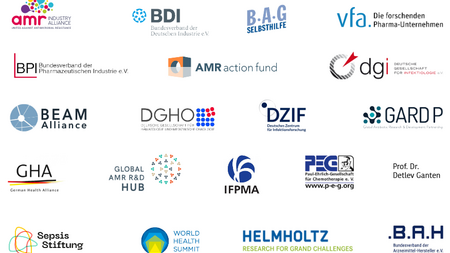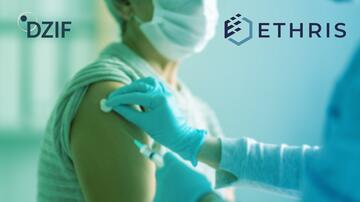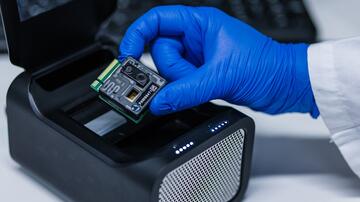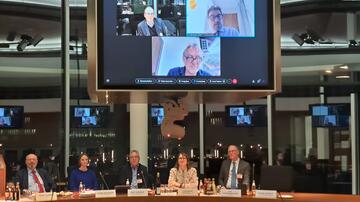20 research, medical and pharmaceutical organizations call on G7 to step up action against antibiotic resistance
Joint Statement
Ahead of the “World Antimicrobial Awareness Week” (November 18-24) 20 national and international organizations from academia, healthcare, global health and the pharmaceutical industry appealed today to G7 governments to step up efforts to tackle the growing problem of antibiotic resistance. The German Center for Infection Research (DZIF) was one of the signatories.
The "Joint Statement on Strengthening the Antibiotic R&D Pipeline by Rewarding Innovation" stresses that only an approach involving both the public and private sectors is likely to succeed.
The signatories emphasise that it is important to ensure
- that more incentives are provided for research and development on new anti-bacterial drugs,
- that new antibiotics against hard to treat infections reach patients quickly,
- that the potential of vaccines to reduce the risk of bacterial infections is fully exploited, and
- that antibiotics that are still effective today are used even more carefully.
In 2022, during its G7 presidency, Germany will have the opportunity to work toward progress and ensure that solutions continue to be worked on during the subsequent Japanese presidency in 2023.
Strengthening the response to antibiotic resistance
Because the problem is multifaceted, the signatories of the joint statement see the need for different measures, some adapted to the health systems of individual countries. Two examples:
In order to strengthen research and development, incentives are needed that provide economic rewards for successfully developed antibiotics against drug-resistant infections – in addition to the current funding support for antibiotics research focuses on individual stages of the development process prior to approval.
In Europe, access to the latest antibiotics for patients in need is often hampered by the lack of adequate coverage by health insurance or public health care. In Germany for example, the current system of per-case flat rates in hospitals is causing problems.
The signatories
The "Joint Statement" was signed by: AMR Action Fund, BAG Selbsthilfe, Bundesverband der Arzneimittelhersteller (BAH), BEAM Alliance, Bundesverband der Deutschen Industrie (BDI), Bundesverband der Pharmazeutischen Industrie (BPI), Deutsche Gesellschaft für Hämatologie und Medizinische Onkologie (DGHO), Deutsche Gesellschaft für Infektiologie (dgi), German Center for Infection Research (DZIF), GARDP, German Health Alliance, Global AMR R&D Hub, Helmholtz Association of German Research Centers, International Federation of Pharmaceutical Manufacturers & Associations (IFPMA), Paul Ehrlich Society for Chemotherapy (PEG), Prof. Dr. Detlev Ganten, Sepsis Foundation, Association of Research-Based Pharmaceutical Companies (vfa), World Health Summit.
Information on the „World Antimicrobial Awareness Week“ Nov. 18-24, 2021




